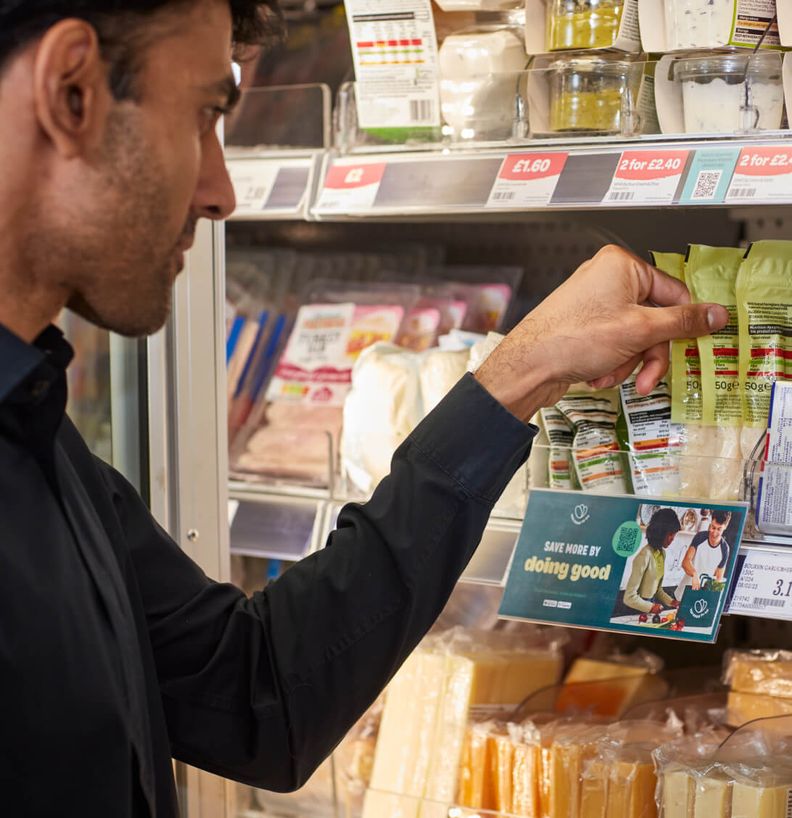Read our open letter to Rt Hon Steve Reed MP, calling for the introduction of mandatory public food waste reporting.
Open Letter: Industry Support for Mandatory Food Waste Reporting
Read our open letter to Rt Hon Steve Reed MP, calling for the introduction of mandatory public food waste reporting.
Open Letter: Industry Support for Mandatory Food Waste Reporting


Dear Secretary of State
RE: Open Letter for Industry Support for Mandatory Food Waste Reporting
As British businesses across the retail, hospitality, food service, manufacturing, wholesale and surplus food marketplace sectors, we are writing to express our collective support for the reconsideration of mandatory public food waste reporting.
We believe the policy will enable the UK to deliver both economic growth whilst addressing the issue of food waste and its wider impact on our natural environment.Currently more than a third of all food produced is wasted, with food waste contributing 10% of global greenhouse gas emissions, pre and post farm gate food waste costing £21.8 billion annually to the UK economy.
Against this context, we welcome the UK Government’s adoption of SDG 12.3 to halve per capita food waste. In support of this target, excellent work is being undertaken across the industry. From the adoption of AI and innovative tools, to improved staff training and opportunities to identify mutually economically beneficial collaborations to repurpose waste streams, to partnerships with surplus food marketplaces, efforts are being made to ensure that good food doesn’t go to waste.
Considerable social benefits can also be seen from redistributing surplus food. However, the action we take as individual businesses won’t tackle the issue alone. We need mandatory food waste reporting to help measure and judge if meaningful impact is being achieved, and to encourage more action to be taken across the whole industry.We have now reached the point where there is a greater opportunity cost of not introducing mandatory food waste reporting than any real costs resulting from the policy, financial or otherwise.
Ensuring that there is robust and comparable data is essential for our industry to identify, and act on supply chain inefficiencies. These occur throughout our interconnected supply chain, and can result in a loss of productivity, inefficient use of capital and over intensive use of our natural resources, be it our land, water or energy.
As signatories, we welcome the steps the Government and WRAP have taken to date through the Courtauld Commitment, but to truly underscore our global climate leadership, and to enable us to operate based on the most reliable data possible, we need mandatory reporting. This will permit us to take the action we want, to ensure that we reduce food waste, drive efficiencies across the supply chain, and deliver greater growth for the UK economy.
Furthermore, investors are becoming more attuned to companies with strong environmental, social, and governance (ESG) practices. Mandatory food waste reporting aligns with these ESG principles, increasing investor confidence and attracting capital to support the growth and development of the UK food industry. A system governed by UK regulators can serve to attest and provide assurance to investors that we are operating in line with ESG principles.
We appreciate the consideration you are giving to this matter and would welcome the opportunity to engage in a constructive dialogue to further discuss how we can work together on this policy. Mandatory food waste reporting is a pragmatic solution which will benefit our industry, natural environment and the UK economy.
Yours sincerely, Too Good To Go and the British Retail Consortium with
Abel and Cole
Aldi
Asda
Bidfood
Booths
Compass Group UK&I
Compleat
GroupCook Trading
Danone
Gousto
IKEA
Innocent Drinks
Lett Us Grow
Lidl
Little Green Footprint
Marks & Spencer
Neighbourly
Nestle
Ocado
Oddbox
Olio
One Stop
Princes
Quorn
Rubies in the Rubble
Sainsbury's
Samworth Brothers
Tesco
The Co-op
Toast Ale
Waitrose
Wells and Co
Winnow
YO! Sushi / Snowfox
Yoplait
start saving food today
start saving food today
Our app is the world's largest marketplace for surplus food. We help users rescue good food from going to waste, offering great value for money at local stores, cafes and restaurants.
JOIN OVER 180,000 BUSINESSES FIGHTING FOOD WASTE WITH US
JOIN OVER 180,000 BUSINESSES FIGHTING FOOD WASTE WITH US


